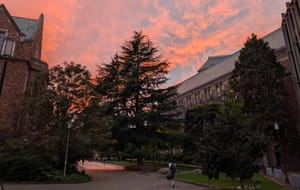I have observed that ‘concentration’ – of data, of connections, of computing capacity – is major feature of Web 2.0. Nick Carr talked about the centripetal web the other day, and this was picked up in an interesting way by Mark Dahl:
With the web as the medium, it becomes that much easier to take the IT department (or the library for that matter) out of the loop when provisioning software or academic content. The HR department, the development office, or an academic department can select content or services over the Internet that meets their needs. User communities for cloud software and services can easily transcend institutional boundaries and make what used to be isolated choices seem less so. Nick Carr recently discusses how cloud computing is exerting a centripetal force throughout the web as a whole, with a trend toward centralization. In the context of an organization, it’s exerting a centrifugal force: it is now much easier for a department or professor to deploy a multi-user application (eg VoiceThread, a NITLE favorite) without the participation of the IT department.
[synthesize-specialize-mobilize: thoughts ahead of NITLE Cloud Computing Event]
This is an example of a major trend. Universities have internalized particular IT or information management activities because there were advantages in doing this, and have developed organizational structures to manage them. It was more efficient for some things to be done centrally within the institution, so that individual departments, or individual faculty, students or administrators, did not have to individually procure them. E-mail and current awareness services might be examples. However, the network changes this dynamic. It may be more efficient for some things to be done at the network level, and the incentives to use or to provide some institutional services change. Departments or individuals increasingly have alternative options for many institutional services, and institutional service providers may have a variety of sourcing models (do I try and build local social networking capacity for students, or do I use an external service; do I create resource pages, or do I use delicious; and so on).



